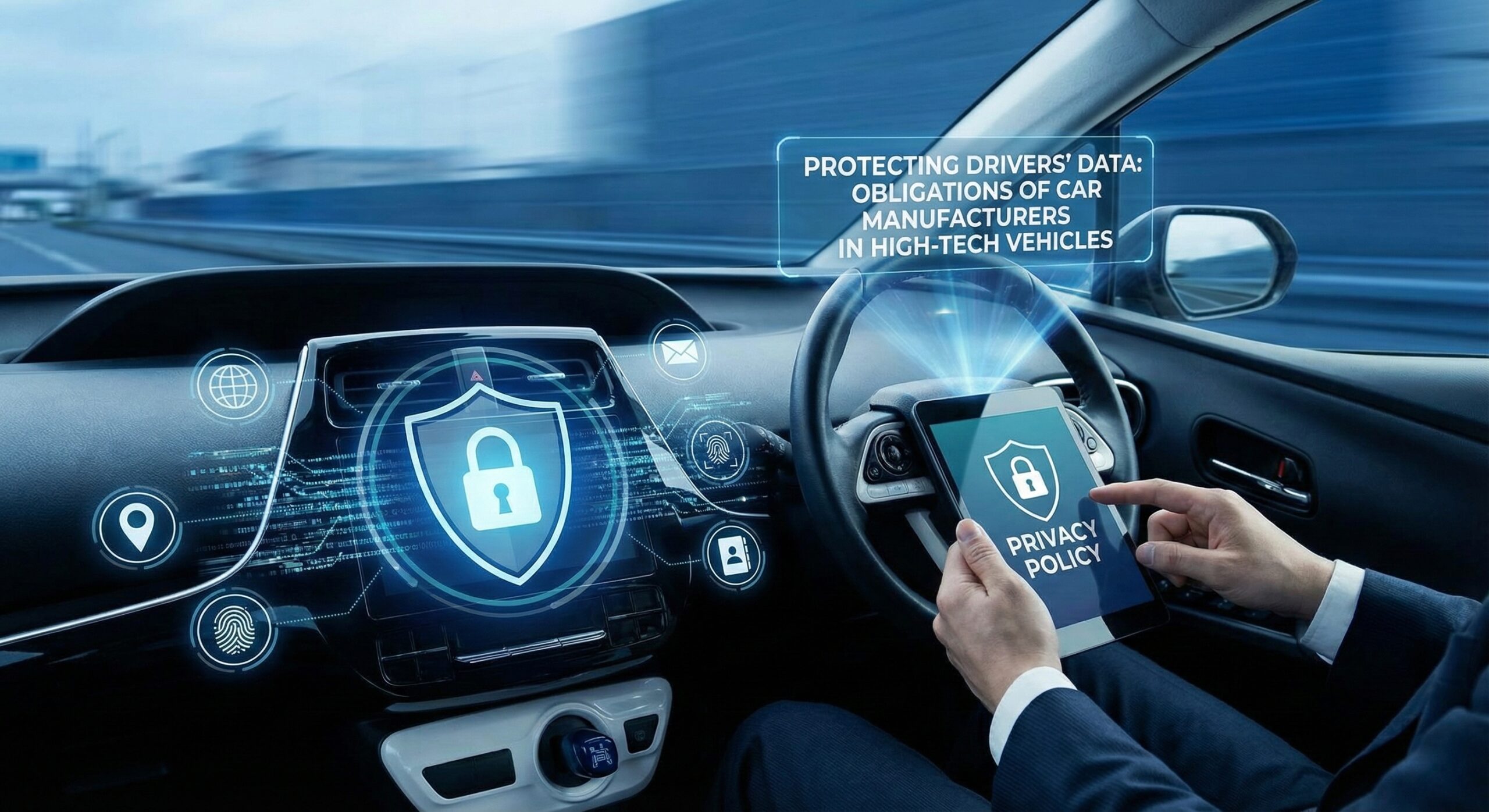This content is protected against AI scraping.
Introduction
Car manufacturers face critical responsibilities and legal obligations concerning the protection of drivers’ personal data, especially in high-tech vehicles and when profiling drivers for insurance purposes. They must comply with global data protection laws, maintain transparency, and prioritize security to safeguard driver privacy.
Legal and Regulatory Frameworks
Car manufacturers are governed by data protection laws such as GDPR (Europe), CCPA (California), PIPEDA (Canada), LGPD (Brazil), and PIPL (China). These laws establish clear requirements for how personal data must be collected, used, stored, and shared, typically requiring explicit notice or consent for non-essential purposes such as advertising or driver profiling.
Core Responsibilities of Car Manufacturers
- Data Minimization: Only collect data necessary for the intended, lawful purpose, and limit excessive, unnecessary information gathering.
- Lawful Basis and Consent: Obtain valid consent from drivers except where essential services (navigation, safety) necessitate data collection.
- Transparency: Inform drivers how their data will be processed, with clear privacy notices and options to opt out of non-essential data sharing.
- Security Measures: Implement rigorous technical and organizational protections—such as encryption and access controls—to prevent unauthorized access or breaches.
- Compliance Audits: Regularly review data handling practices to ensure continued regulatory compliance and accountability.
- Data Rights: Enable drivers to access, correct, delete, or restrict the processing of their data, responding promptly to such requests.
Profiling for Insurance Purposes
Profiling, such as “pay-as-you-drive” or usage-based insurance, involves collecting extensive behavioral data (speed, braking, location) and must respect privacy rights.
- Legal Basis: Profiling is permissible with the driver’s consent or if strictly necessary for delivering the insurance service.
- Fairness and Non-Discrimination: Insurers and manufacturers must validate profiling mechanisms to prevent algorithmic bias or unfair pricing.
- Transparency in Algorithms: Disclose how driver data influences insurance premiums and offer appeals or review options for contested profiling outcomes.
Frequently Asked Questions (Q&A)
Q: Can drivers demand deletion of their driving data?
A: Yes. Under most data protection laws, drivers can request deletion of their personal data except where legal or contractual obligations prevent it.
Q: What type of car data is considered “personal”?
A: Any information that can be linked to an individual—including telematics, location history, biometric data, and in-vehicle communications—is treated as personal data.
Q: Are manufacturers allowed to sell driver data to third parties?
A: Only with a valid lawful basis, commonly consent in the EU/UK. In California, they must notify consumers and offer opt-out rights, but explicit consent is not always required.
Q: How are cybersecurity risks managed in connected vehicles?
A: Manufacturers must adopt robust security protocols like encryption, penetration testing, and network monitoring to prevent breaches and unauthorized data use.
Q: What rights do drivers have to access their vehicle data?
A: Drivers can request copies of their data, ask for corrections, and control how their information is shared. Data portability rights empower drivers to switch service providers more easily.
Conclusion
Car manufacturers must navigate a dynamic global regulatory landscape, acting transparently and fairly when processing and sharing driver data—especially for profiling or insurance purposes. Ensuring compliance, fostering trust, and proactively managing privacy risks are essential for protecting individual rights in the era of high-tech automobiles.
To find out more and how Formiti helps the car industry click here

